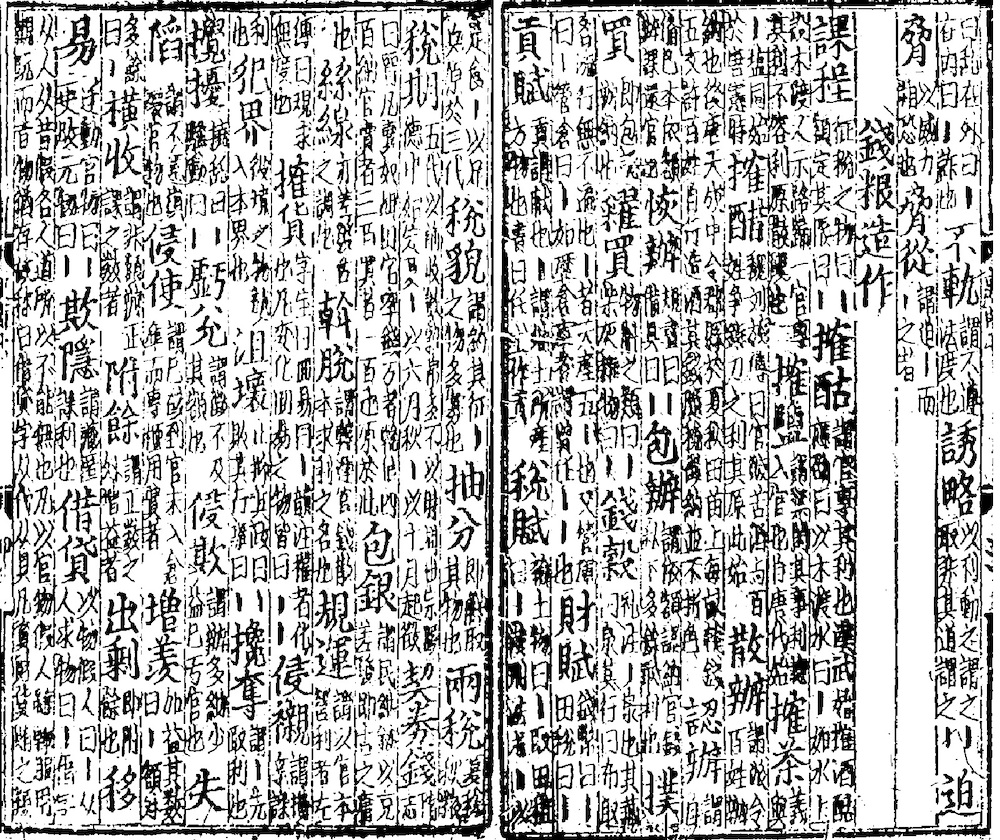Lixue zhinan 吏學指南 "Compass of administrative knowledge", full title Xili youxue zhinan 習吏幼學指南, is a manual on local administration compiled by Xu Yuanrui 徐元瑞 during the Yuan period 元 (1279-1368). Of the author, practically nothing is known, except that he hailed from Wujun 吳郡 or Pingjiang 平江 (both being the names of today's Suzhou 蘇州, Jiangsu). The book, with a length of 8 juan, was finished in 1301.
In his preface, Xu explained that good government presumed a decent understanding of law and legal procedures (yu zhi bi xian ming yu fa 欲治必先明乎法), and holds – in a very legalist manner – that "clear punishments make the people obedient" (xing ming er qing, min zi fu yi 刑明而清,民自服矣). Xu collected examples from the past and present to compile a handbook on good government on the local level. He interpreted his book as a kind of "enlightenment" literature (qimeng 啟蒙), a term generally used for elementary learning.
Even if the author used legalist arguments for local governance, he also held the Confucian paradigm of benevolence to compliant subjects in high esteem. The book consists of 91 small chapters and no less than 2,109 "articles" of quotations from ancient literature, each of which is explained in a few words.
 |
First page of the chapter on money (taxes) and public construction work (Qianliang zaozuo 錢糧造作). Lemmata are printed in large characters, followed by definitions and examples in smaller ones. |
The book does not only give insight into the procedures and the philosophy of judicial administration of the Yuan period but also the technical terms of the time. It was part of the anonymous collection Jujia biyong shilei quanji 居家必用事類全集 from the early Ming period 明 (1368-1644) and is listed in the books analyzed (cunmu 存目, "existing texts") by the compilers of the imperial series Siku quanshu 四庫全書, but is not part of the series itself. In 1951, the Tōyōshi kenkyūkai 東洋史研究會 published a modern edition, and in 1979, the Taiwanese Wenha Press 文海出版社。 Contemporary copies survive in Japan and Korea. A modern, annotated edition was published in 1988 by the Zhejiang Guji Press 浙江古籍出版社.